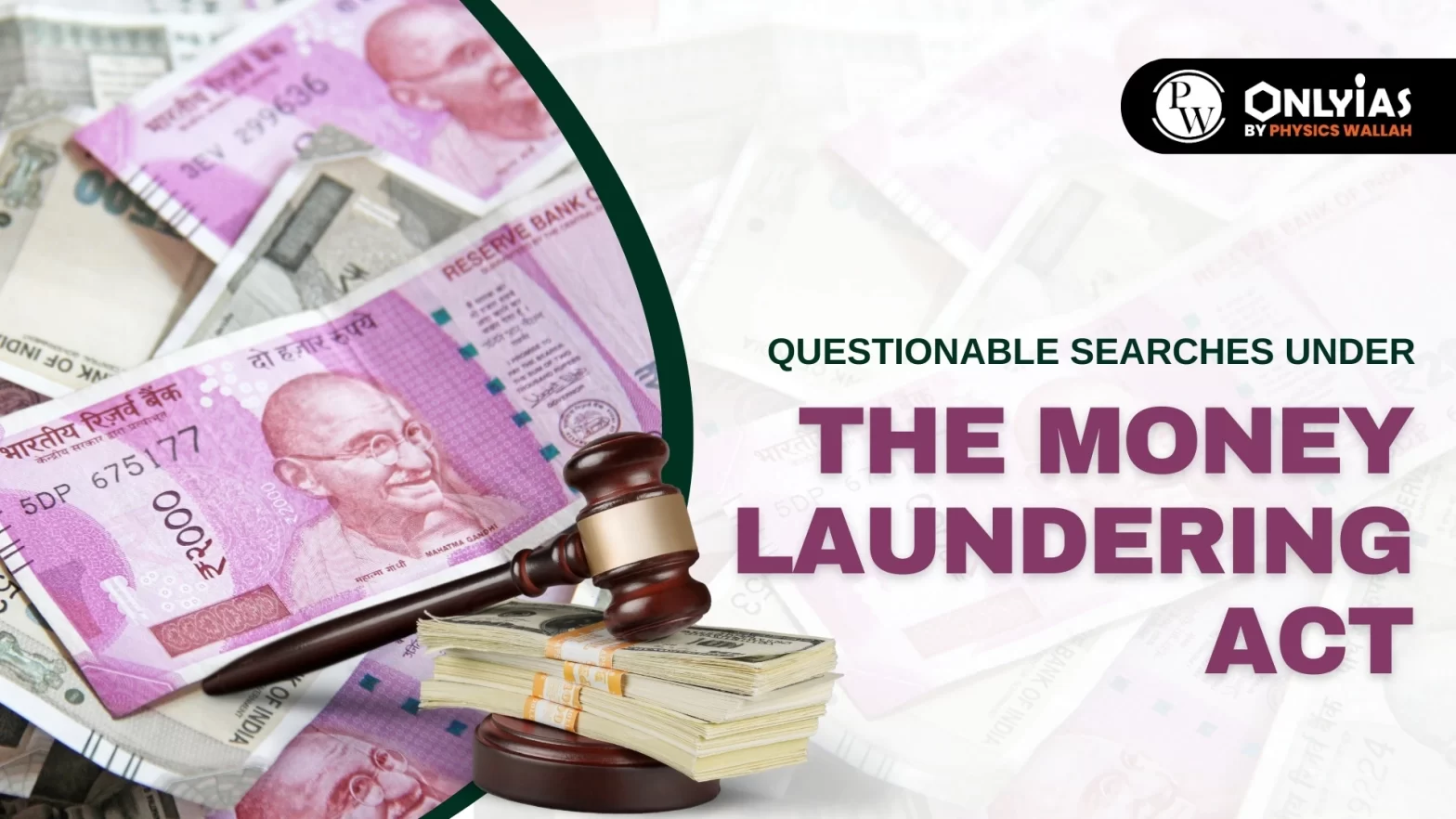Context: This article is based on an Editorial “Questionable searches under the Money Laundering Act” which was published in the Hindu. This article argues that allowing agencies like Enforcement Directorate (ED) to investigate matters like illegal mining, which falls under the jurisdiction of state governments, goes against the federal structure of the Indian Constitution.
| Relevancy for Prelims: Prevention of Money Laundering Act, (PMLA) 2002, and Enforcement Directorate (ED).
Relevancy for Mains: Prevention of Money Laundering Act, (PMLA) 2002, its application and concerns of misuse by authorities like Enforcement Directorate (ED). |
About the Prevention of Money Laundering Act, (PMLA) 2002
- PMLA and the Rules notified there under came into force with effect from July 1, 2005.
- It forms the core of the legal framework put in place by India to combat money laundering. It was passed in the background of India’s commitment to the international community to fight the drug menace and terrorism.
Arising Concerns Over Supreme Court Judgments on the Prevention of Money Laundering Act
- Narrow Interpretation by the Supreme Court: In Vijay Madanlal Choudhary and Ors vs Union of India and Ors. (2022), the Supreme Court of India limited the PMLA application to “on the wrongful and illegal gain of property as a result of criminal activity relating to a scheduled offense”.
- However, the Court declared that absent the existence of proceeds of crime, the authorities under the Money Laundering Act 2002 Act cannot step in or initiate any prosecution.
- As the existence of “proceeds of crime” is “sine qua non” for the offense under Section 3 of the PMLA
- Reports by Media: The media has reported many cases of ED searches, seizures and arrests, which are beyond the ED’s powers, as held by the Court.
- Recently, in the case of Pankaj Bansal vs Union of India, ED faced severe criticism from the Supreme Court.
- Challenge to Federalism: The ED is conducting inquiries in States with respect to the alleged illegal mining of sand, a minor mineral under the control of States and not the Union.
- However, the Mines and Minerals (Development and Regulation) Act, 1957 is not covered by the Schedule of the PMLA Act and related offenses are not “Scheduled Offenses”. As per this Act, the power to curb illegal mining and prosecute offenders lies with the State government.
- Example: Recently, in Jharkhand, the ED has started investigating cases of alleged illegal mining under the pretext of money laundering, despite mining is not a scheduled offense under PMLA.
Also Read: ED Can Provide Grounds of Arrest to Accused Within 24 Hours: SC
Conclusion:
There is a need to prevent the misuse of authority of any organization like investigative agencies as it undermines federalism which is a fundamental value and basis of India’s Constitution. The Supreme Court also has upheld federalism and division of powers between Center and States as part of the basic structure of the Constitution.
![]() 22 Dec 2023
22 Dec 2023

